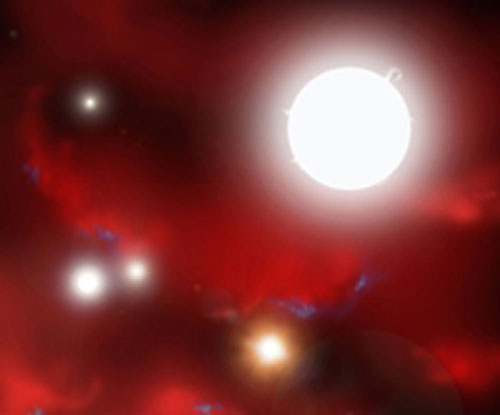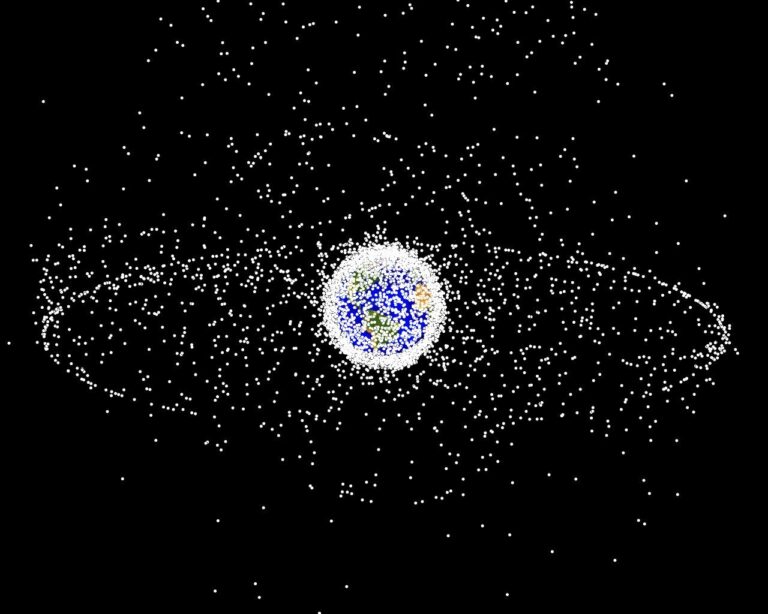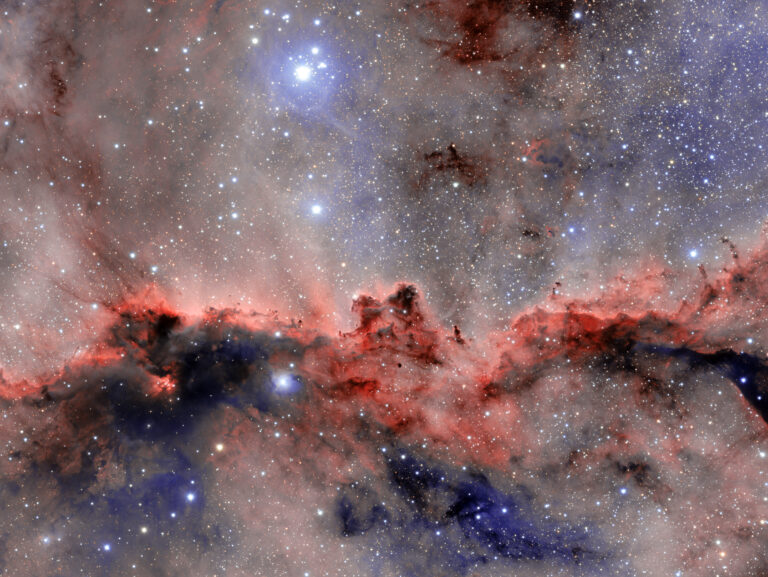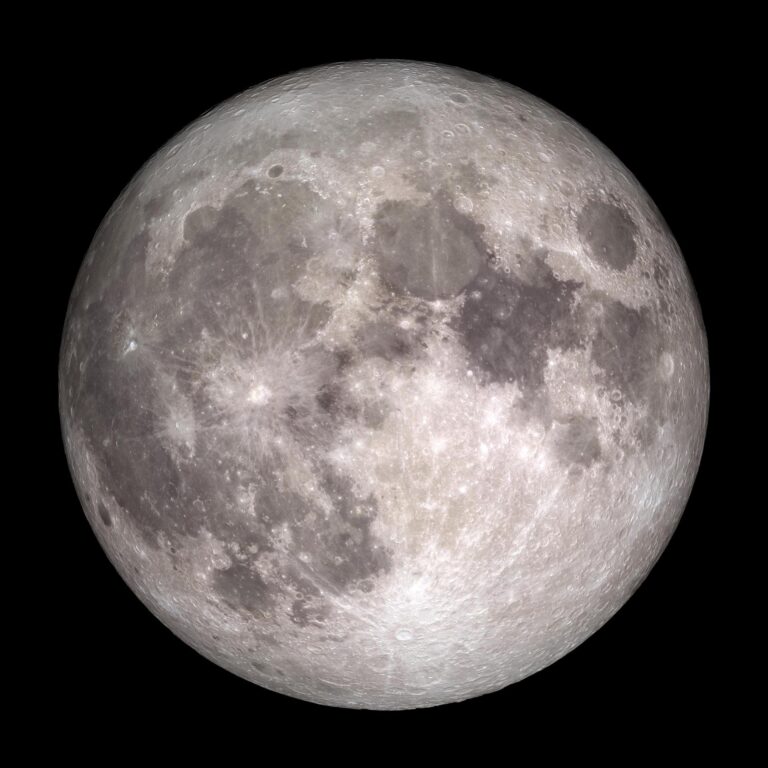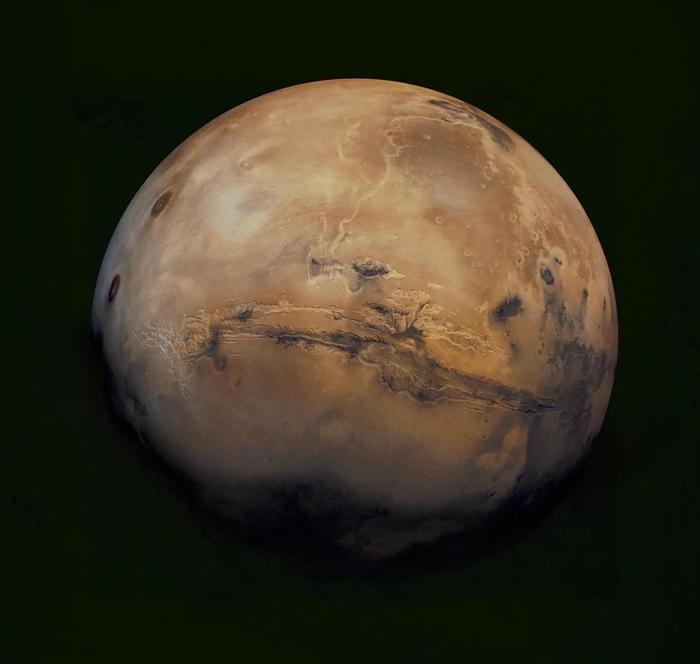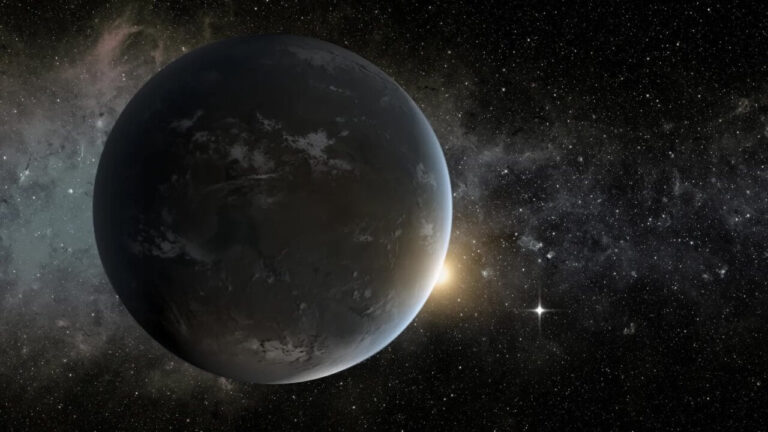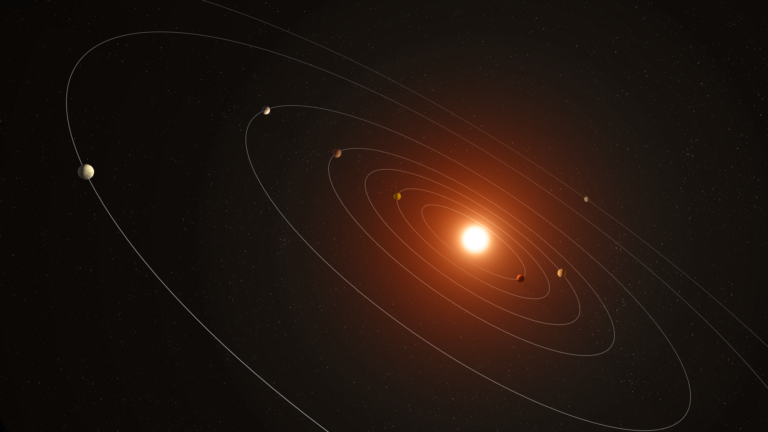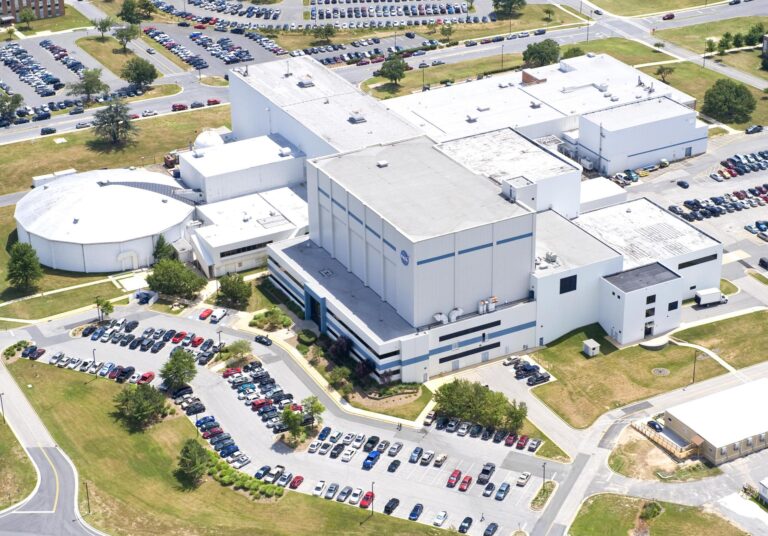The biggest point of confusion in this question is the assumption that in 13.7 billion years the universe could have grown by only 13.7 billion light-years. This assumption is false. When we talk about the universe being a certain age, we mean that the proper time measured by a clock moving with cosmic expansion reads that many years since the Big Bang. If we use coordinates based on Albert Einstein’s special theory of relativity, that assumed clock moving with expansion travels close to the speed of light and thus hardly ticks at all. Thus, the universe can get huge before clocks have measured 13.7 billion years. (If you want a more in-depth explanation, which involves graphs and algebra, visit http://www.astro.ucla.edu/~wright/cosmo_02.htm.)
This description of the universe’s size has nothing to do with “inflation” or “exponential growth,” although these will make the universe even huger.
The data actually only say that the universe is huge, but mathematically the simplest “huge” models are infinite in size. A model that is infinite now had to be infinite in size at all times after the Big Bang, so an infinite universe had to be born infinite. There is nothing illogical about this, and the mathematics are “simple” (meaning, they aren’t very complicated for Einstein’s general theory of relativity). — Edward L. (Ned) Wright, University of California, Los Angeles

